Adnane Cabani
SHREC 2025: Protein surface shape retrieval including electrostatic potential
Sep 16, 2025



Abstract:This SHREC 2025 track dedicated to protein surface shape retrieval involved 9 participating teams. We evaluated the performance in retrieval of 15 proposed methods on a large dataset of 11,555 protein surfaces with calculated electrostatic potential (a key molecular surface descriptor). The performance in retrieval of the proposed methods was evaluated through different metrics (Accuracy, Balanced accuracy, F1 score, Precision and Recall). The best retrieval performance was achieved by the proposed methods that used the electrostatic potential complementary to molecular surface shape. This observation was also valid for classes with limited data which highlights the importance of taking into account additional molecular surface descriptors.
* Published in Computers & Graphics, Elsevier. 59 pages, 12 figures
SuperpixelGridCut, SuperpixelGridMean and SuperpixelGridMix Data Augmentation
Apr 11, 2022
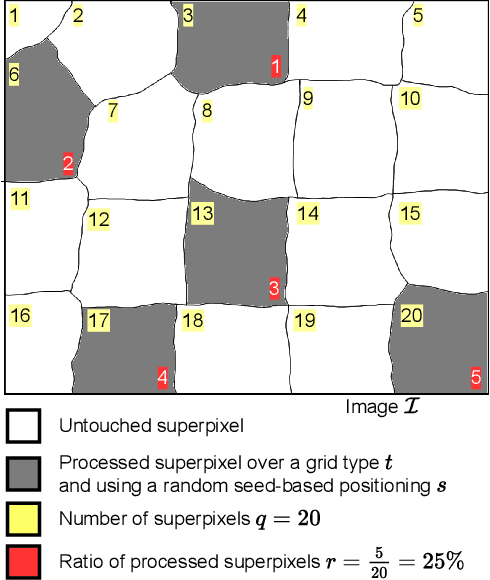
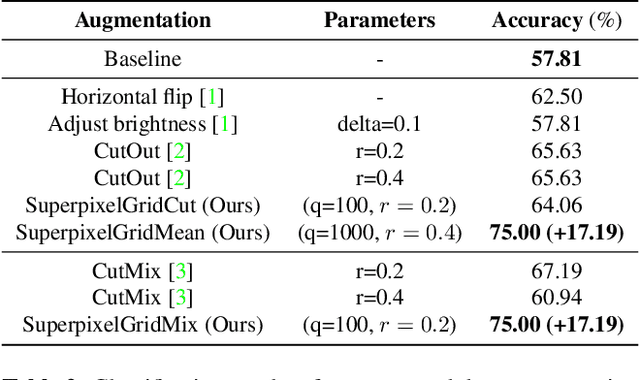
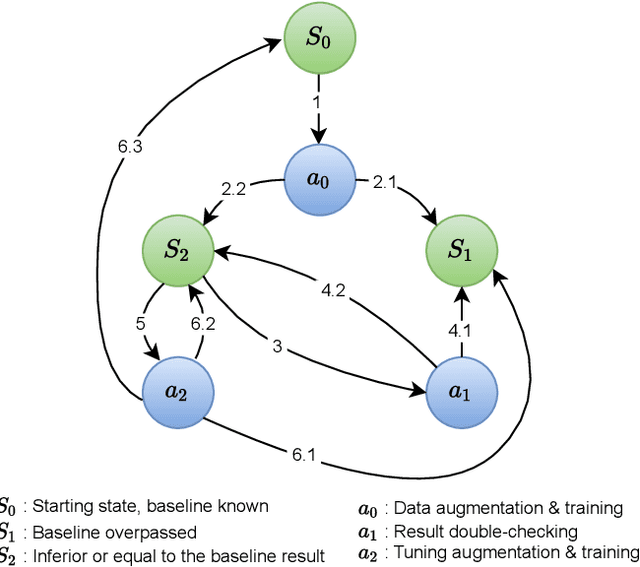
Abstract:A novel approach of data augmentation based on irregular superpixel decomposition is proposed. This approach called SuperpixelGridMasks permits to extend original image datasets that are required by training stages of machine learning-related analysis architectures towards increasing their performances. Three variants named SuperpixelGridCut, SuperpixelGridMean and SuperpixelGridMix are presented. These grid-based methods produce a new style of image transformations using the dropping and fusing of information. Extensive experiments using various image classification models and datasets show that baseline performances can be significantly outperformed using our methods. The comparative study also shows that our methods can overpass the performances of other data augmentations. Experimental results obtained over image recognition datasets of varied natures show the efficiency of these new methods. SuperpixelGridCut, SuperpixelGridMean and SuperpixelGridMix codes are publicly available at https://github.com/hammoudiproject/SuperpixelGridMasks
MaskedFace-Net -- A Dataset of Correctly/Incorrectly Masked Face Images in the Context of COVID-19
Aug 18, 2020
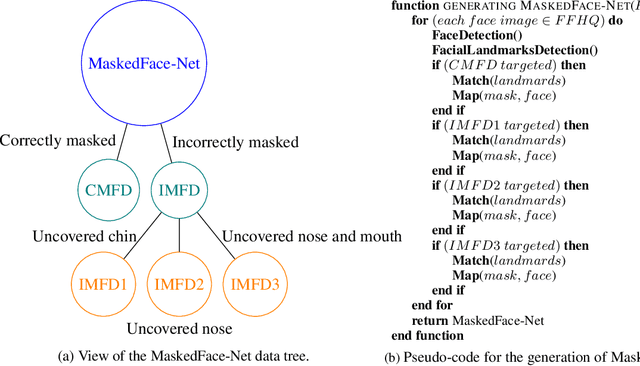

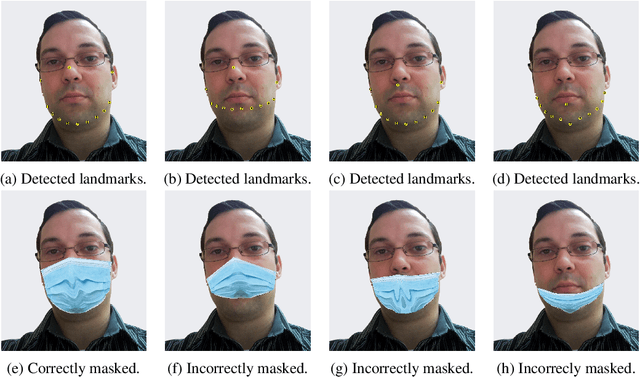
Abstract:The wearing of the face masks appears as a solution for limiting the spread of COVID-19. In this context, efficient recognition systems are expected for checking that people faces are masked in regulated areas. To perform this task, a large dataset of masked faces is necessary for training deep learning models towards detecting people wearing masks and those not wearing masks. Some large datasets of masked faces are available in the literature. However, at the moment, there are no available large dataset of masked face images that permits to check if detected masked faces are correctly worn or not. Indeed, many people are not correctly wearing their masks due to bad practices, bad behaviors or vulnerability of individuals (e.g., children, old people). For these reasons, several mask wearing campaigns intend to sensitize people about this problem and good practices. In this sense, this work proposes three types of masked face detection dataset; namely, the Correctly Masked Face Dataset (CMFD), the Incorrectly Masked Face Dataset (IMFD) and their combination for the global masked face detection (MaskedFace-Net). Realistic masked face datasets are proposed with a twofold objective: i) to detect people having their faces masked or not masked, ii) to detect faces having their masks correctly worn or incorrectly worn (e.g.; at airport portals or in crowds). To the best of our knowledge, no large dataset of masked faces provides such a granularity of classification towards permitting mask wearing analysis. Moreover, this work globally presents the applied mask-to-face deformable model for permitting the generation of other masked face images, notably with specific masks. Our datasets of masked face images (137,016 images) are available at https://github.com/cabani/MaskedFace-Net.
 Add to Chrome
Add to Chrome Add to Firefox
Add to Firefox Add to Edge
Add to Edge